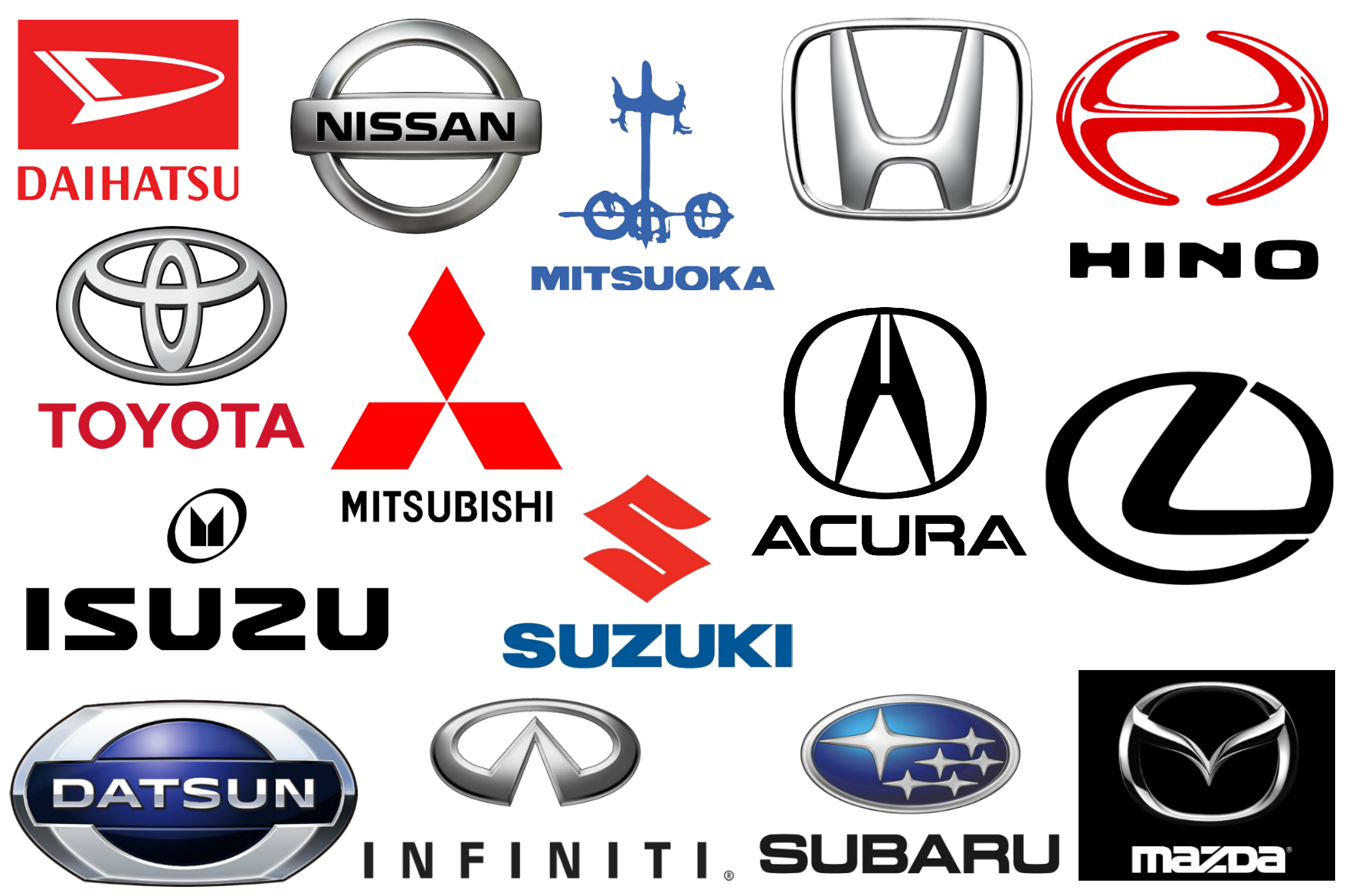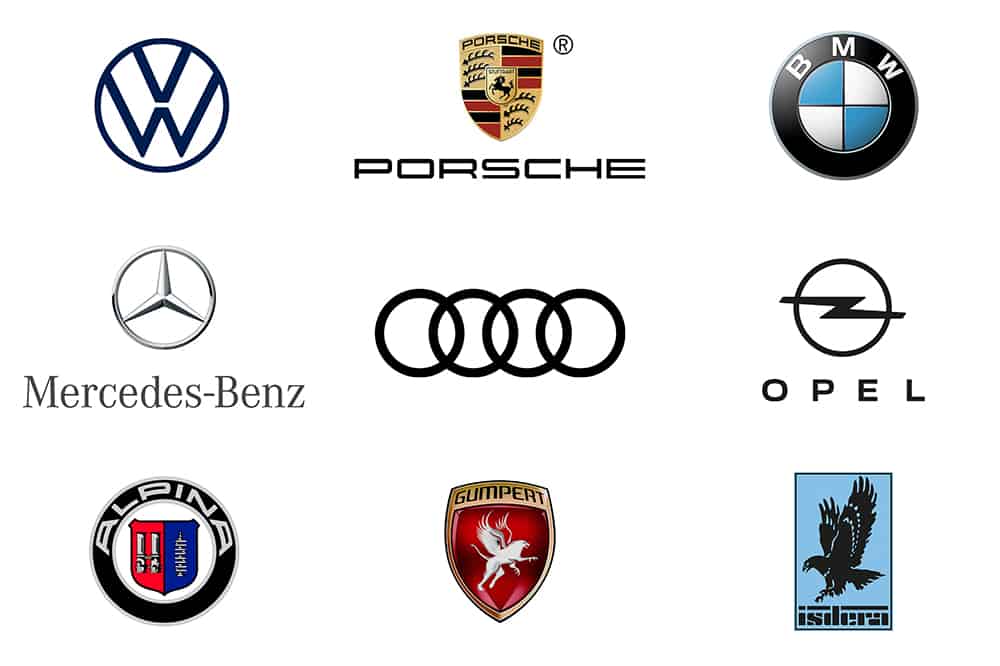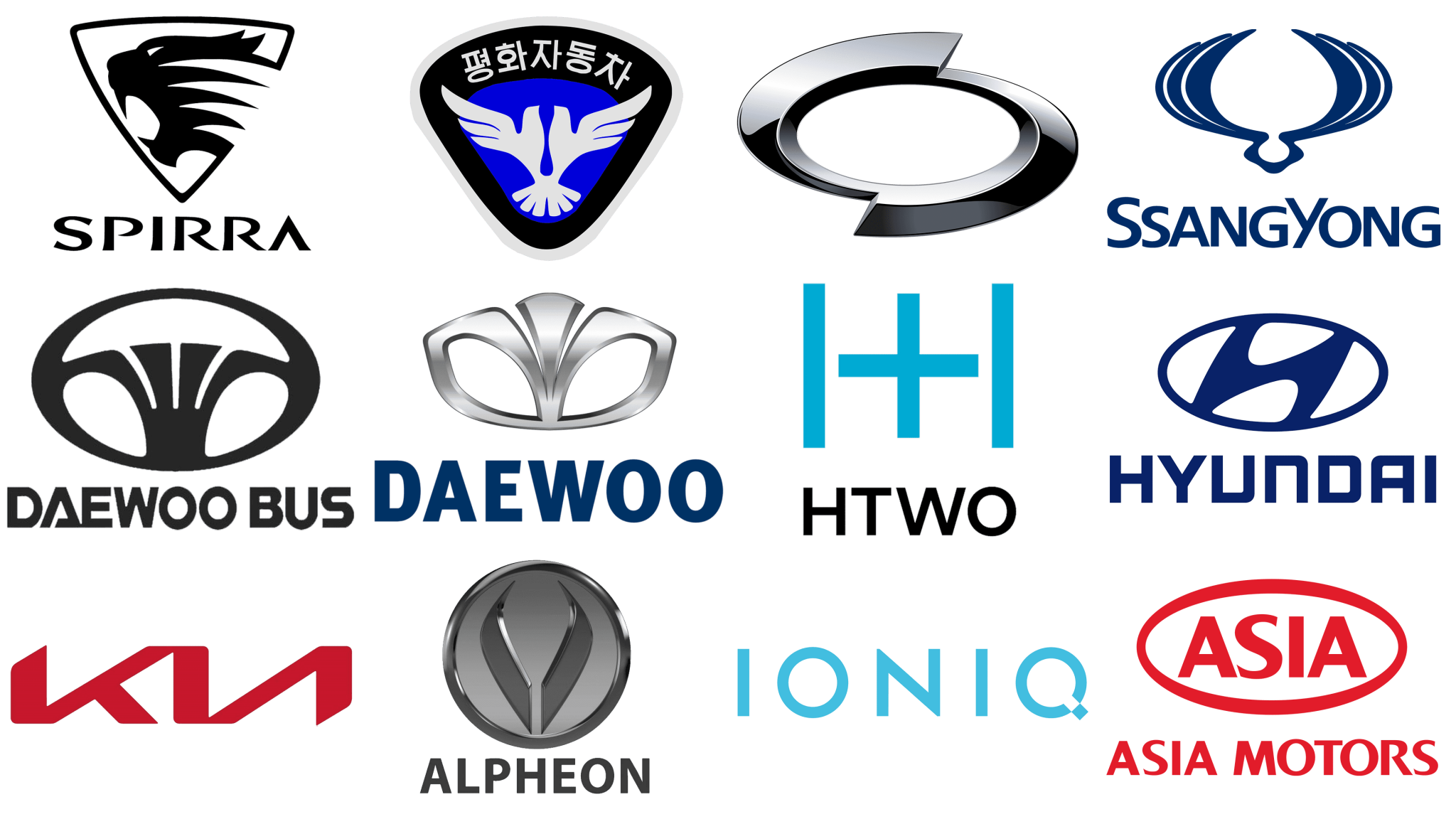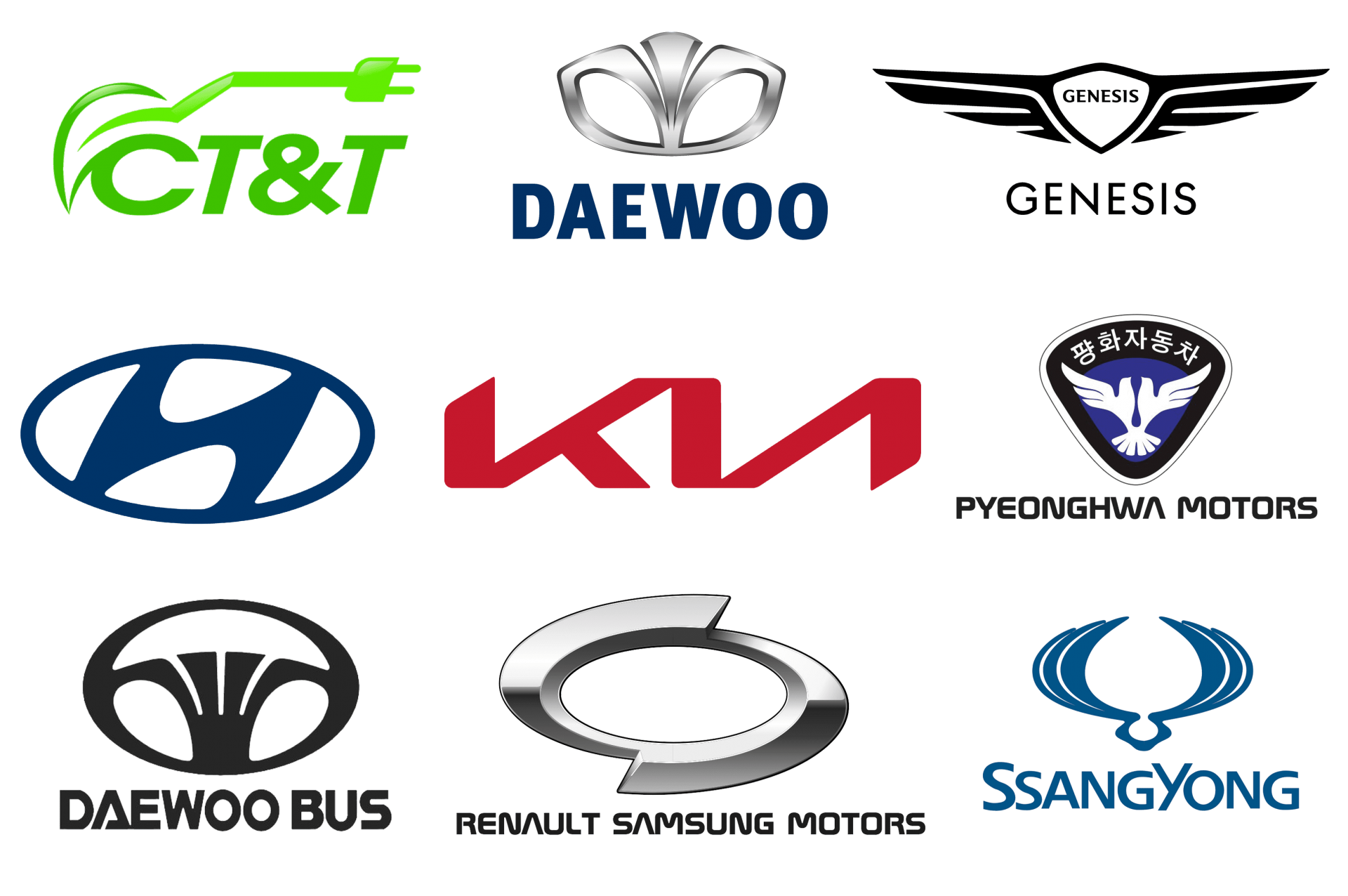Japanese Car Brands and Their Popularity have become synonymous with quality, reliability, and affordability, making them a dominant force in the global automotive industry. From the early days of humble beginnings to the technological marvels of today, Japanese car brands have consistently impressed consumers worldwide, captivating the market with their unwavering commitment to innovation and customer satisfaction.
This rise to prominence can be attributed to several factors, including a focus on engineering excellence, a deep understanding of customer needs, and a dedication to continuous improvement. The Japanese automotive industry has long been known for its meticulous attention to detail, its emphasis on efficiency, and its willingness to embrace cutting-edge technology.
This dedication to quality has resulted in vehicles that are not only reliable and durable but also fuel-efficient and cost-effective, making them highly attractive to a wide range of buyers.
History of Japanese Car Brands

The history of Japanese car brands is a remarkable story of innovation, resilience, and global dominance. From humble beginnings in the early 20th century, Japanese automakers transformed themselves into major players in the global automotive industry, challenging and ultimately surpassing established Western brands.
This journey is marked by a combination of factors, including government support, technological advancements, and a focus on quality and affordability.
Early Years and Key Brands
The early years of Japanese car manufacturing were characterized by a focus on small, fuel-efficient vehicles designed for the domestic market. The first Japanese car, the “Taisho,” was produced in 1911 by the Tokyo Gas & Electric Industry. However, it was the emergence of brands like Toyota, Nissan, and Honda in the post-World War II era that truly propelled the Japanese automotive industry forward.
- Toyota:Founded in 1937 by Kiichiro Toyoda, Toyota Motor Corporation initially focused on producing textiles. However, the company diversified into the automotive sector, driven by the need for reliable transportation during wartime. Toyota’s early models, like the Toyota AA, were designed for durability and efficiency, laying the foundation for the company’s future success.
- Nissan:Originally known as Nihon Sangyo, Nissan was founded in 1933 and initially focused on producing automobiles under the Datsun brand. The company faced challenges during World War II but emerged as a major player in the postwar era, known for its innovative technologies and affordable vehicles.
Japanese car brands like Toyota and Honda are known for their reliability and fuel efficiency, making them popular choices for consumers worldwide. This popularity can extend to their owners’ insurance needs, especially when considering factors like the value of the vehicle and the risk of theft.
For those residing in Rhode Island, understanding the nuances of home insurance is equally crucial, as it protects against unforeseen events. A comprehensive guide to Rhode Island Home Insurance Quotes can help homeowners navigate the complexities of finding the right coverage, ensuring peace of mind for both their vehicles and their homes.
- Honda:Founded in 1948 by Soichiro Honda, Honda Motor Company started as a small motorcycle manufacturer. The company’s success in the motorcycle market allowed it to expand into the automotive industry, introducing the Honda Civic in 1972. Honda’s focus on innovation and fuel efficiency made it a major force in the global market.
Factors Contributing to Growth
Several key factors contributed to the rapid growth of Japanese car brands in the global market:
- Government Support:The Japanese government played a crucial role in supporting the development of the domestic automotive industry. This support included policies that encouraged innovation, facilitated access to capital, and promoted exports.
- Technological Advancements:Japanese automakers were known for their focus on technological advancements, particularly in areas like engine efficiency, fuel injection, and robotics. These advancements helped Japanese cars become known for their reliability, performance, and fuel economy.
- Focus on Quality and Affordability:Japanese car brands emphasized quality control and production efficiency, resulting in vehicles that were both reliable and affordable. This focus on value helped Japanese cars gain a foothold in international markets, especially in the United States and Europe.
- Marketing Strategies:Japanese carmakers adopted aggressive marketing strategies, targeting specific customer segments and emphasizing the benefits of their vehicles. These strategies helped to create a strong brand image and build customer loyalty.
Early Models and Strategies
Japanese car brands initially focused on producing small, fuel-efficient vehicles that were well-suited to the needs of the Japanese market. However, as they expanded into international markets, they began to diversify their product lines, offering a wider range of vehicles to meet the demands of global consumers.
- Toyota:Toyota’s early models, such as the Toyota Crown and the Toyota Corona, were known for their durability and fuel efficiency. The company also introduced the Toyota Land Cruiser, a rugged SUV that gained popularity worldwide.
- Nissan:Nissan’s Datsun brand was known for its affordable and reliable vehicles, such as the Datsun 1200 and the Datsun 240Z. The company also introduced the Nissan Skyline, a performance sedan that became a popular choice among enthusiasts.
- Honda:Honda’s early automotive success was driven by the Honda Civic, a compact car that offered excellent fuel economy and reliability. The company also introduced the Honda Accord, a mid-size sedan that became a popular choice in the American market.
Factors Contributing to Popularity
The rise of Japanese car brands to global prominence is a testament to their consistent focus on key features and qualities that resonate with consumers worldwide. These factors have contributed to their enduring popularity and solidified their position as major players in the automotive industry.
Reliability
Reliability has been a cornerstone of Japanese car brands’ success. Their vehicles are known for their durability and ability to withstand the test of time, minimizing the need for frequent repairs and maintenance. This reputation for reliability has been cultivated through rigorous quality control processes and a focus on engineering excellence.
“Japanese cars are known for their reliability, durability, and fuel efficiency. These factors have contributed to their popularity around the world.”
Automotive Industry Expert
Fuel Efficiency
Fuel efficiency has become increasingly important to consumers as fuel prices fluctuate and environmental concerns grow. Japanese car brands have consistently delivered vehicles with impressive fuel economy, often exceeding industry standards. This focus on fuel efficiency has made their vehicles attractive to budget-conscious consumers and environmentally conscious drivers alike.
Japanese car brands like Toyota and Honda are known for their reliability and fuel efficiency, making them popular choices among US drivers. To ensure your investment is protected, consider securing comprehensive insurance coverage, and Get a USAA Insurance Quote: A Comprehensive Guide can help you find the right policy.
With the right insurance, you can drive with peace of mind, knowing your Japanese car is protected from unexpected events.
Affordability
Japanese car brands have often been associated with affordability, offering competitive pricing without compromising on quality. This strategy has made their vehicles accessible to a wider range of consumers, contributing to their high sales volumes.
“Japanese car brands have been successful in offering vehicles that are both reliable and affordable, making them a popular choice for consumers around the world.”
Japanese car brands like Toyota and Honda are known for their reliability and fuel efficiency, making them popular choices for both families and individuals. This popularity extends beyond land, as many boat owners, especially those in the military, rely on USAA for their insurance needs.
Boat Insurance Quote USAA: A Guide for Military Members provides a comprehensive resource for military personnel seeking coverage for their watercraft. Just as Japanese car brands cater to a diverse range of drivers, USAA offers tailored insurance solutions for military members, ensuring peace of mind both on the road and on the water.
Automotive Industry Analyst
Innovation and Technology
Japanese car brands have consistently pushed the boundaries of automotive innovation, introducing cutting-edge technologies that enhance performance, safety, and driver experience. From advanced engine technologies to driver assistance systems, their commitment to innovation has kept them at the forefront of the industry.
“Japanese car brands are known for their innovative technologies, such as hybrid and electric vehicles, which have helped them stay ahead of the competition.”
Automotive Industry Expert
Popular Japanese Car Brands and Their Models
Japanese car brands have consistently held a strong presence in the global automotive market, known for their reliability, efficiency, and innovative features. From iconic sedans to powerful SUVs, Japanese manufacturers cater to a diverse range of consumer needs. This section will delve into the most popular Japanese car brands and their key models, highlighting their target audience, key features, and market performance.
Popular Japanese Car Brands and Their Models
The following table provides an overview of some of the most popular Japanese car brands and their key models, along with their target audience, key features, and market performance.
| Brand | Model | Key Features | Target Audience |
|---|---|---|---|
| Toyota | Camry | Spacious interior, fuel efficiency, advanced safety features, reliability | Families, professionals, and commuters seeking a comfortable and practical sedan |
| Honda | CR-V | Spacious interior, fuel efficiency, advanced safety features, versatility | Families, young professionals, and outdoor enthusiasts seeking a practical and reliable SUV |
| Nissan | Altima | Sporty design, powerful engine options, advanced technology features, value for money | Young professionals, individuals seeking a stylish and affordable sedan |
| Mazda | CX-5 | Sleek design, engaging driving dynamics, advanced safety features, premium interior | Individuals seeking a stylish and sporty SUV with a premium feel |
| Subaru | Outback | All-wheel drive, rugged design, spacious interior, off-road capability | Outdoor enthusiasts, families, and individuals seeking a versatile and capable SUV |
| Lexus | ES 350 | Luxury interior, smooth and quiet ride, advanced technology features, reliability | Luxury car buyers seeking a comfortable and refined sedan |
| Acura | MDX | Spacious interior, powerful engine options, advanced technology features, luxury features | Families and individuals seeking a luxurious and capable SUV |
Impact of Japanese Car Brands on the Automotive Industry

Japanese car brands have profoundly reshaped the global automotive landscape, influencing design, manufacturing, and competition. Their focus on efficiency, reliability, and affordability has not only earned them a loyal customer base but also pushed other manufacturers to innovate and adapt.
Influence on Global Automotive Design and Manufacturing, Japanese Car Brands and Their Popularity
Japanese car brands have significantly impacted global automotive design and manufacturing. They introduced concepts like lean manufacturing, just-in-time production, and quality control methodologies that revolutionized the industry. Their designs, often characterized by practicality and efficiency, gained popularity worldwide.
- Lean Manufacturing:Japanese car brands pioneered lean manufacturing principles, emphasizing waste reduction and efficiency in production processes. This approach, exemplified by Toyota’s production system, has been widely adopted by global automotive manufacturers.
- Just-in-Time Production:Japanese car brands implemented just-in-time production, minimizing inventory and ensuring timely delivery of parts. This system reduced waste and increased efficiency, influencing global manufacturing practices.
- Quality Control:Japanese car brands are renowned for their rigorous quality control standards. Their focus on quality assurance has set a benchmark for the industry, inspiring other manufacturers to adopt similar practices.
- Design Innovations:Japanese car brands have introduced innovative designs, emphasizing practicality, fuel efficiency, and reliability. Their focus on user-centric design and ergonomic features has influenced global automotive design trends.
Competition Between Japanese and Other Global Car Brands
Japanese car brands have consistently competed with other global brands, pushing the industry to innovate and improve. Their focus on efficiency, affordability, and reliability has challenged traditional European and American carmakers.
- Fuel Efficiency:Japanese car brands have been at the forefront of fuel efficiency, developing innovative technologies like hybrid and electric vehicles. This focus has influenced other manufacturers to prioritize fuel economy in their offerings.
- Affordability:Japanese car brands have often offered vehicles at competitive prices, making them accessible to a wider range of consumers. This strategy has forced other manufacturers to adjust their pricing strategies.
- Reliability:Japanese car brands are known for their high reliability and durability. Their focus on quality and long-term performance has challenged other manufacturers to improve their products’ longevity.
Future of Japanese Car Brands
Japanese car brands are poised to continue their influence in the evolving automotive landscape. They are investing heavily in electric vehicles, autonomous driving technologies, and connectivity solutions. Their focus on innovation and sustainability will play a key role in shaping the future of mobility.
- Electric Vehicle Development:Japanese car brands are aggressively developing electric vehicle models, investing in battery technology and charging infrastructure. They are well-positioned to capitalize on the growing demand for electric vehicles.
- Autonomous Driving Technologies:Japanese car brands are actively developing autonomous driving technologies, collaborating with tech companies and research institutions. They aim to become leaders in the self-driving vehicle market.
- Connectivity Solutions:Japanese car brands are integrating connectivity solutions into their vehicles, offering features like infotainment systems, telematics, and over-the-air updates. They are leveraging technology to enhance the driving experience and provide connected services.
Epilogue: Japanese Car Brands And Their Popularity

Japanese car brands have undoubtedly left an indelible mark on the automotive industry, shaping global trends and setting new standards for innovation and performance. As the industry continues to evolve, driven by technological advancements and changing consumer preferences, Japanese car brands remain at the forefront, constantly adapting and innovating to stay ahead of the curve.
Their commitment to quality, their focus on customer satisfaction, and their unwavering pursuit of excellence ensure that they will continue to play a significant role in shaping the future of mobility.




